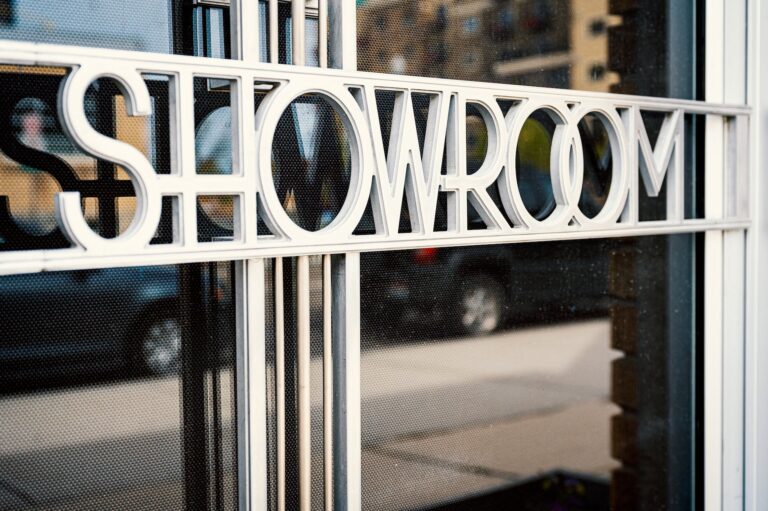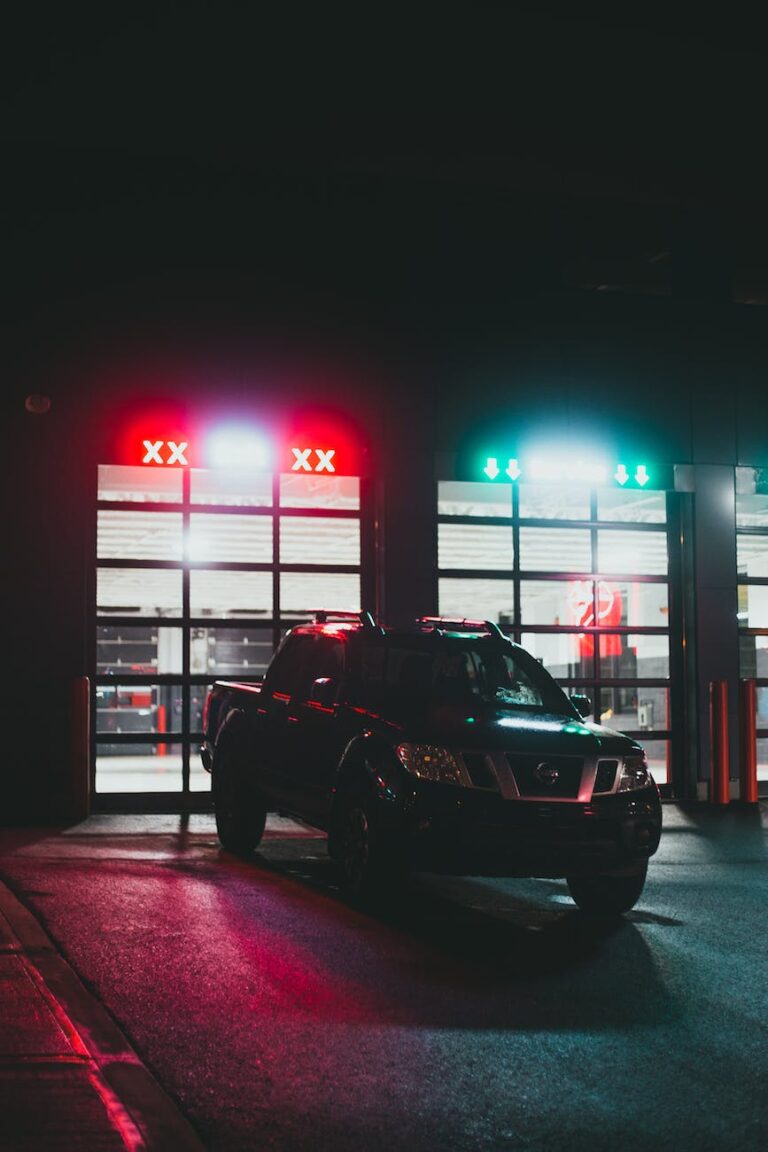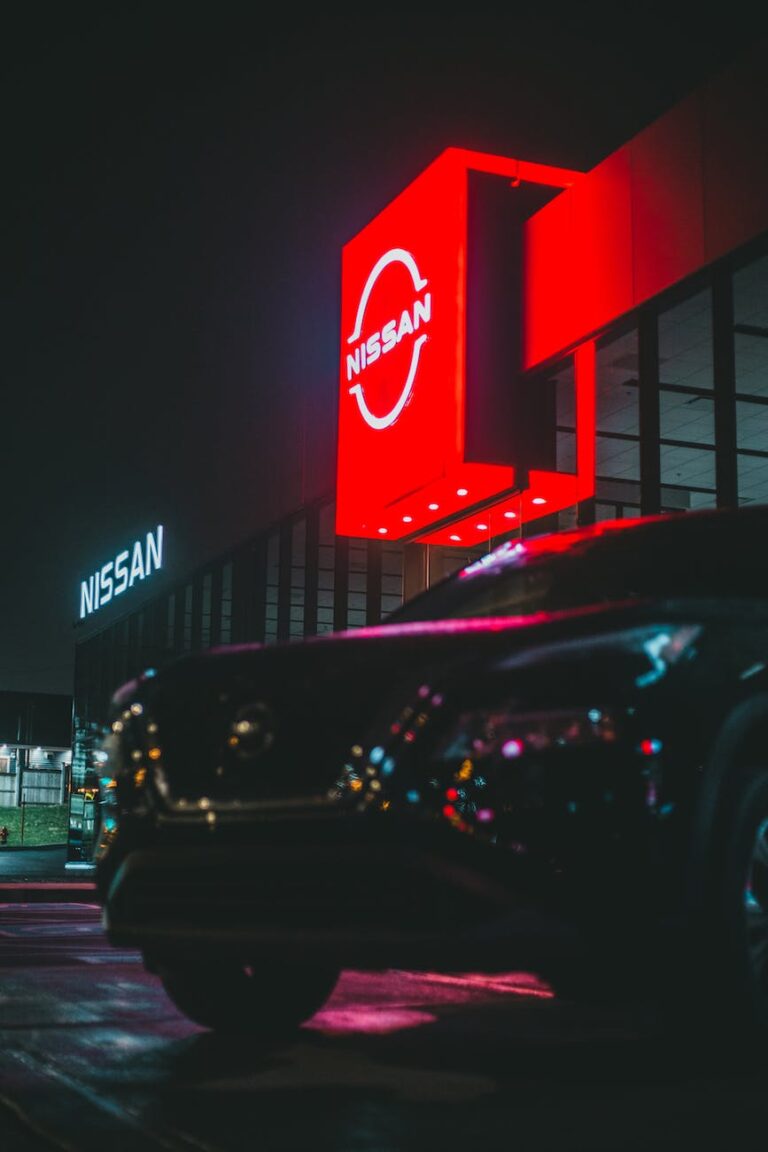Starting a Car Dealership
Before diving into the world of car sales, it’s essential to have a clear understanding of what it takes to start a car dealership. From obtaining the necessary licenses to securing a location, there are several factors to consider. Additionally, one crucial aspect that should not be overlooked is insurance coverage for car dealerships.
Overview of Starting a Car Dealership
Starting a car dealership involves more than just a passion for cars. It requires careful planning, research, and adherence to legal requirements. Entrepreneurs looking to enter the automotive industry should familiarize themselves with the steps involved in starting a car dealership. For a comprehensive guide on this topic, check out our article on how to start a car dealership.
Key considerations when starting a car dealership include:
- Business Plan: Developing a solid business plan that outlines your goals, target market, and financial projections is crucial for long-term success.
- Location: Selecting an appropriate location for your dealership is essential to attract customers and maximize visibility. Factors such as foot traffic, accessibility, and proximity to other businesses should be taken into account.
- Inventory Management: Implementing effective inventory management systems and processes is essential to ensure you have a diverse selection of vehicles to offer customers. For tips on managing your inventory, check out our article on car dealership inventory management.
- Marketing Strategies: Developing effective marketing strategies to promote your dealership and attract customers is key. From traditional advertising methods to digital marketing techniques, there are various approaches to consider. Learn more about effective marketing strategies for car dealerships in our article on car dealership marketing strategies.
Importance of Insurance Coverage for Car Dealerships
Insurance coverage plays a critical role in the success and protection of a car dealership. As a car dealer, you face various risks, including accidents, property damage, theft, and liability claims. Having the right insurance coverage in place can help safeguard your business and provide financial protection in the event of unforeseen circumstances.
Some of the key reasons why insurance coverage is important for car dealerships are:
- Risk Mitigation: Car dealerships are exposed to a range of risks inherent to the industry. Insurance coverage helps mitigate these risks by providing financial protection against potential losses, such as damage to inventory, liability claims, or lawsuits.
- Legal Compliance: Many states require car dealerships to have certain types of insurance coverage in order to obtain and maintain their dealer license. Understanding the car dealership license requirements in your state is essential to ensure compliance.
- Financial Protection: In the event of accidents, natural disasters, or other unforeseen events, insurance coverage can provide financial assistance to repair or replace damaged inventory, property, or equipment. This helps minimize the financial impact on your business.
- Peace of Mind: Having comprehensive insurance coverage in place gives you peace of mind, knowing that your dealership is protected against potential risks and liabilities.
To better understand the types of insurance coverage available for car dealerships, continue reading our next section on Types of Insurance Coverage.
Types of Insurance Coverage
When starting a car dealership, it’s crucial to have comprehensive insurance coverage in place to protect your business from potential risks and liabilities. Here are some essential types of insurance coverage to consider:
General Liability Insurance
General liability insurance provides coverage for bodily injury, property damage, and personal injury claims that may arise from the daily operations of your car dealership. It protects your business against lawsuits and helps cover legal expenses, medical costs, and damages awarded to the injured party.
Property Insurance
Property insurance safeguards your car dealership’s physical assets, including the building, inventory, equipment, and furniture. It provides coverage against perils such as fire, theft, vandalism, and natural disasters. Having property insurance ensures that your business can recover and rebuild in the event of a covered loss.
Garage Liability Insurance
Garage liability insurance is specifically designed for auto dealerships. It provides coverage for accidents that occur on your premises or during test drives. This insurance protects your dealership from claims related to bodily injury, property damage, and medical expenses resulting from these incidents.
Dealer Open Lot Insurance
Dealer open lot insurance, also known as inventory insurance, covers the vehicles on your car dealership’s lot. It protects your inventory against risks such as theft, vandalism, fire, and damage from natural disasters. This insurance is essential to safeguard your investment in the vehicles you sell.
Workers’ Compensation Insurance
Workers’ compensation insurance is crucial if you have employees working at your car dealership. It provides coverage for medical expenses, lost wages, and rehabilitation costs if an employee suffers a work-related injury or illness. This insurance helps protect your employees and ensures compliance with state regulations.
Cyber Liability Insurance
In today’s digital age, cyber liability insurance is becoming increasingly important for businesses, including car dealerships. This insurance covers expenses related to data breaches, cyber-attacks, and other cyber incidents that may compromise your dealership’s sensitive information or customer data. It helps cover costs such as legal fees, notifications to affected individuals, and credit monitoring services.
It’s essential to understand that insurance requirements may vary by state, so make sure to research the specific state licensing and insurance requirements for car dealerships in your area. Additionally, minimum coverage limits may be mandated, so ensure that your insurance policies meet or exceed these requirements. For more information on starting a car dealership, including licensing requirements and other considerations, check out our article on how to start a car dealership.
When choosing insurance coverage for your car dealership, take the time to research insurance providers, obtain multiple quotes, and carefully evaluate the coverage options available. This will help you make an informed decision that best suits the needs and budget of your business. Remember to regularly review and update your coverage to ensure that it adequately protects your car dealership against potential risks and liabilities.
Understanding Insurance Requirements
When starting a car dealership, it’s crucial to understand the insurance requirements in order to protect your business and comply with legal obligations. This section will cover three important aspects related to insurance requirements for car dealerships: state licensing and insurance requirements, minimum coverage limits, and additional coverage considerations.
State Licensing and Insurance Requirements
Each state has its own specific licensing and insurance requirements for car dealerships. It is essential to research and understand the regulations set forth by your state’s department of motor vehicles or regulatory agency governing motor vehicle sales. These requirements typically include obtaining a dealer license and maintaining adequate insurance coverage.
To operate legally and obtain a dealer license, you will likely need to provide proof of specific types of insurance coverage, such as general liability insurance and garage liability insurance. Additionally, you may be required to provide a surety bond as a form of financial protection for consumers. It’s important to consult your state’s requirements and work with an insurance professional specializing in car dealership insurance to ensure compliance.
Minimum Coverage Limits
State licensing requirements often specify minimum coverage limits for car dealership insurance. These limits establish the minimum amount of coverage you must have to meet legal obligations. It’s crucial to understand and meet these minimum requirements to avoid penalties and potential legal issues.
The minimum coverage limits can vary depending on the state and the specific type of insurance coverage. For example, general liability insurance may have separate limits for bodily injury, property damage, and personal injury. Property insurance may have separate limits for the building structure and contents.
To ensure you are meeting the minimum coverage limits, consult your state’s licensing requirements and work with an insurance professional who is knowledgeable about car dealership insurance. They can help you determine the appropriate coverage limits for each type of insurance you need.
Additional Coverage Considerations
While meeting the minimum coverage requirements is important, it’s also essential to consider additional coverage options that can provide comprehensive protection for your car dealership. Additional coverage considerations may include:
-
Dealer open lot insurance: This coverage protects the vehicles in your inventory against damage or loss while they are stored or being transported.
-
Workers’ compensation insurance: If you have employees, workers’ compensation insurance provides coverage for work-related injuries or illnesses.
-
Cyber liability insurance: As a car dealership, you may handle sensitive customer information. Cyber liability insurance can protect your business in the event of a data breach or cyber attack.
It’s crucial to assess the specific risks your car dealership may face and consult with an insurance professional to determine the appropriate additional coverage options for your business. By carefully considering these additional coverage options, you can better safeguard your car dealership against potential risks and minimize financial liabilities.
Understanding insurance requirements is an essential part of starting and operating a car dealership. By meeting the state’s licensing and insurance requirements, ensuring you have the minimum coverage limits, and considering additional coverage options, you can help protect your business, your employees, and your customers.
Choosing the Right Insurance Provider
Selecting the right insurance provider is a critical step in ensuring your car dealership is adequately protected. Researching insurance providers, obtaining multiple quotes, and evaluating coverage options are essential aspects of this process.
Researching Insurance Providers
When searching for an insurance provider for your car dealership, it’s important to conduct thorough research. Look for insurance companies that specialize in providing coverage for car dealerships or the automotive industry in general. Consider their reputation, financial stability, and customer reviews. Make sure the insurance provider has a good track record of handling claims efficiently and providing excellent customer service. Consulting with fellow car dealership owners or industry experts can also provide valuable insights and recommendations.
Obtaining Multiple Quotes
To make an informed decision, it’s advisable to obtain multiple insurance quotes from different providers. This allows you to compare coverage options, premiums, deductibles, and any additional services offered. Be sure to provide accurate and detailed information about your car dealership to ensure the quotes are tailored to your specific needs. By comparing quotes side by side, you can identify the most competitive and comprehensive coverage for your dealership.
Evaluating Coverage Options
While cost is an important factor, it’s equally important to evaluate the coverage options provided by each insurance provider. Consider the specific insurance needs of your car dealership, such as general liability, property, garage liability, and worker’s compensation. Assess the coverage limits, exclusions, and any additional endorsements or policies available. Take note of any unique risks specific to your dealership and ensure the chosen insurance provider can adequately address those risks. Remember to review the policy terms and conditions carefully to understand all the inclusions and exclusions.
To assist you in evaluating coverage options, here is a table summarizing the different types of insurance coverage typically required by car dealerships:
| Insurance Coverage | Description |
|---|---|
| General Liability Insurance | Provides coverage for third-party bodily injury, property damage, and personal injury claims. |
| Property Insurance | Protects your dealership’s property, including buildings, inventory, and equipment, against physical damage or loss. |
| Garage Liability Insurance | Covers liability arising from operations related to the selling and servicing of vehicles, such as test drives and repairs. |
| Dealer Open Lot Insurance | Insures the vehicles in your inventory against damage or loss while they are on your premises or in transit. |
| Workers’ Compensation Insurance | Provides benefits to employees who suffer work-related injuries or illnesses. Required in most states. |
| Cyber Liability Insurance | Protects against data breaches, hacking, and other cyber risks that may compromise customer information. |
Selecting the right insurance provider is crucial for safeguarding your car dealership from potential risks and liabilities. By conducting thorough research, obtaining multiple quotes, and carefully evaluating coverage options, you can make an informed decision that provides the necessary protection for your dealership’s operations.
Tips for Managing Insurance Costs
Managing insurance costs is an essential aspect of running a car dealership. By implementing effective risk management strategies, understanding deductibles and premiums, and regularly reviewing and updating coverage, car dealerships can better manage their insurance expenses.
Risk Management Strategies
Implementing risk management strategies is a proactive approach to minimize potential risks and reduce insurance costs. Here are a few strategies that car dealerships can consider:
-
Safety protocols: Implement and enforce safety protocols to minimize accidents and injuries on the dealership premises. This can include regular maintenance of the facility, proper signage, and employee training on safety procedures.
-
Vehicle safety inspections: Thoroughly inspect and recondition vehicles before selling them to ensure their safety. This can help prevent potential liability claims related to faulty or unsafe vehicles.
-
Employee training: Provide comprehensive training to employees on safety practices, customer interactions, and compliance with regulations. Well-trained employees are less likely to engage in activities that could lead to insurance claims.
-
Security measures: Install security systems, such as surveillance cameras and alarm systems, to deter theft and vandalism. This can help lower the risk of property damage and loss.
By implementing these risk management strategies, car dealerships can minimize potential risks and demonstrate their commitment to maintaining a safe and secure environment.
Deductibles and Premiums
Understanding deductibles and premiums is crucial when managing insurance costs. A deductible is the amount the insured party must pay out of pocket before the insurance coverage kicks in. Choosing a higher deductible can help lower premium costs, but it’s important to ensure that the deductible amount remains affordable in case of a claim.
Premiums are the regular payments made to the insurance provider to maintain coverage. Car dealerships should compare quotes from multiple insurance providers to find the most competitive rates while considering the coverage offered.
Additionally, maintaining a good claims history and demonstrating a commitment to risk management can help negotiate lower premiums with insurance providers. For more information on how to obtain multiple insurance quotes, refer to our article on car dealership insurance.
Reviewing and Updating Coverage Regularly
Regularly reviewing and updating insurance coverage is essential for car dealerships. As the business evolves, the insurance needs of the dealership may change. It’s important to assess coverage annually or when significant changes occur, such as expanding the dealership, adding new services, or acquiring additional vehicles.
By reviewing coverage regularly, car dealerships can ensure that their insurance policies adequately protect them against potential risks. This may involve adjusting coverage limits, adding or removing specific coverage types, or exploring new insurance providers to find more cost-effective options.
Maintaining accurate and up-to-date records of the dealership’s assets, inventory, and operations can facilitate the review process and help ensure that the coverage remains aligned with the dealership’s needs.
By implementing risk management strategies, understanding deductibles and premiums, and regularly reviewing and updating coverage, car dealerships can effectively manage their insurance costs while maintaining adequate protection against potential risks.







